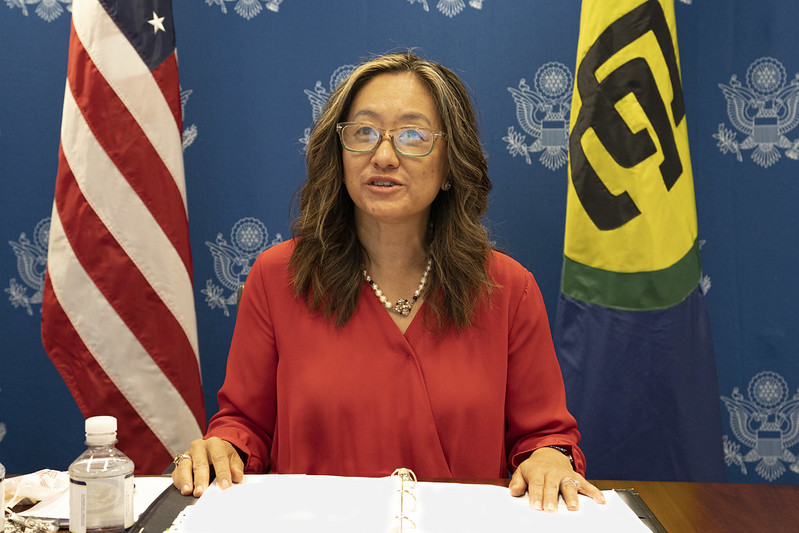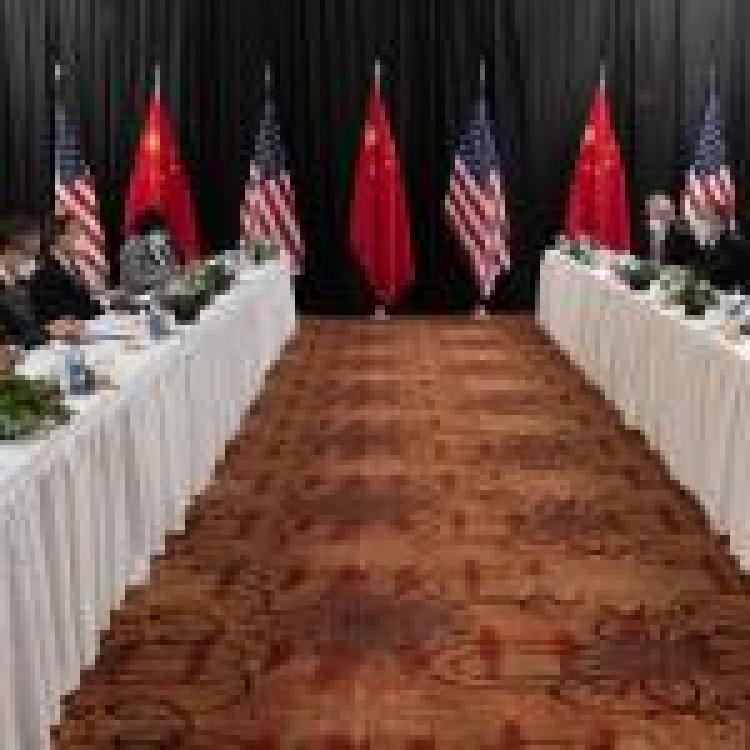
Yesterday US President, Joe Biden announced that Julie Chung as Ambassador to Sri Lanka and Maldives alongside 8 other nominees for crucial diplomatic roles.
Chung is currently serving as the Acting Assistant Secretary in the Bureau of Western Hemisphere Affairs and has previously served as Principal Deputy Assistant Secretary. She has served in a variety of roles including Japan, Vietnam, Thailand, Cambodia, Colombia, and Iraq.
Read her biography here.
Chinese debt diplomacy
Speaking during a Senate hearing on China’s role in the Indo-Pacific region, last September, she voiced her concerns over Chinese “debt diplomacy” noting:
“We see their investment hurting the environment, violating local labour laws. We’ve brought these issues to light with the region and raised it with our government counterparts”.
She also emphasised the role of civil society stating:
“Getting voices out from local partners, local NGOs, local journalists, youth groups. That’s where we see the power”.
Sri Lanka has an outstanding debt to China of approximately $4.5 billion dollars. In May, Sri Lanka passed the controversial bill which had been widely panned by opposition parties, civil society groups, labour unions, and Tamil parliamentarians.
Amongst the concerns raised are labour rights with Ceylon Federation of Labour highlighting provisions that exempt employers operating within the Port City from compliance with Sri Lanka’s labour laws. The Hindu notes that the Union had fought and won a case in the late 1970s when the J.R. Jayawardene government tried to deny labour law protection to workers at the newly established Free Trade Zone.
General Secretary of the Federation, T.M.R. Raseedin, has warned that with the passage of the bill, “we will be going back to an era when ‘hire and fire’ ruled employer-employee relationships.”
Despite opposition, the bill passed on 20 May, with 149 to 58 and without any amendments accepted.
Read more here: 'You chose to destroy, you chose to commit genocide' - TNPF leader slams Colombo Port City project
Combating authoritarianism
During the hearing, Chung also spoke on the US policy towards aid and combatting Chinese support for authoritarian regimes. She stated during the hearing:
“When we hear about OPEC deals from China for any other country. We are making sure we are closely aligned and the programs we do on anti-corruption and civil society strengthening go to build that space so that China’s malign influence does not overtake that space”.
She highlighted a critical stance towards authoritarian regimes working with China noting that that the US Development Finance Corporation (DFC) is noting engaging with Venezuela until a democratic transition.
“There is no better example in the region than Maduro’s regime and working in close concert with China and Chine’s CTE long had a relationship with the Maduro regime and providing them capacity which spies on civil society and oppositional leaders and determines who gets what food allocation in that country. Right now, we are not engaging in DFC in Venezuela, but in the future when we have a democratic transition in the country, we would love to bring DFC in and help rebuild”.
Her statement comes as Sri Lanka continues to forge strong alliances with China, with President Rajapaksa lavishing praise upon Chinese President Xi Jinping and claiming a desire to learn from their authoritarian governance.
The EU has recently passed a resolution condemning Sri Lanka’s deteriorating of human rights and calling on Sri Lanka “to cease the surveillance and intimidation of members of civil society and human rights defenders using the terrorism division of the police force and state intelligence services”.
The resolution further expressed alarm over the “increasing attacks and arrests of journalists, academics, and civil society activists”. In addition, it called on Sri Lanka to “refrain from using allegations of “terrorist financing” to deny civil society organizations access to legitimate sources of funding”.
Similarly, Britain’s Upper Tribunal noted in a landmark court ruling that Sri Lanka was “an authoritarian government” and highlighted the state’s expansive surveillance apparatus.
Chung's nomination follows a resolution introduced into the House of Representatives calling for an "effective international mechanism for accountability" and a "permanent political solution" in Sri Lanka.
Read the State Department's press release here.
View the full hearing here.



